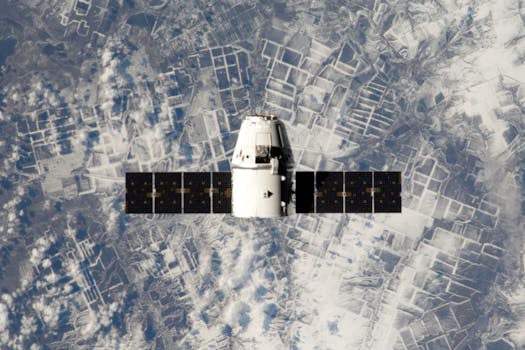The Future of Satellites: Revolutionizing Global Connectivity
The future of satellites is poised to revolutionize global connectivity, enabling faster and more reliable communication services. With advancements in space technology, satellites are becoming increasingly important for a wide range of applications, from telecommunications to navigation and earth observation.

The Future of Satellites: Revolutionizing Global Connectivity
As we continue to rely on technology to drive innovation and progress, the role of satellites in our daily lives is becoming increasingly important. The future of satellites is poised to revolutionize global connectivity, enabling faster and more reliable communication services. With advancements in space technology, satellites are becoming increasingly important for a wide range of applications, from telecommunications to navigation and earth observation.
Introduction to Satellites
Satellites have been a crucial part of our space exploration and communication infrastructure for decades. Since the launch of the first artificial satellite, Sputnik, in 1957, satellites have been used for a variety of purposes, including telecommunications, navigation, weather forecasting, and earth observation. Today, there are thousands of satellites in orbit around the earth, providing a wide range of services that are essential to modern life.
Advancements in Satellite Technology
Recent advancements in satellite technology have enabled the development of smaller, cheaper, and more efficient satellites. This has led to a proliferation of satellite launches in recent years, with many companies and organizations launching their own satellites into orbit. One of the key drivers of this trend is the development of CubeSats, small satellites that are typically around the size of a shoebox. CubeSats are relatively inexpensive to launch and can be used for a wide range of applications, from earth observation to telecommunications.
Another key trend in satellite technology is the development of satellite constellations. These are networks of satellites that work together to provide global coverage and enable a wide range of services, from broadband internet to navigation and earth observation. Satellite constellations have the potential to revolutionize global connectivity, enabling faster and more reliable communication services for people and businesses around the world.
Applications of Satellites
Satellites have a wide range of applications, from telecommunications to navigation and earth observation. One of the most important applications of satellites is in the field of telecommunications. Satellites are used to provide broadband internet, television, and telephone services to people and businesses around the world. They are particularly important in remote and underserved areas, where traditional telecommunications infrastructure may not be available.
Satellites are also used for navigation and earth observation. The Global Positioning System (GPS) is a network of satellites that provides location information to GPS receivers on the ground. This information is used for a wide range of applications, from navigation and mapping to precision agriculture and surveying. Satellites are also used for earth observation, providing valuable data and images of the earth’s surface. This information is used for a wide range of applications, from weather forecasting and climate monitoring to natural resource management and disaster response.
Conclusion
In conclusion, the future of satellites is poised to revolutionize global connectivity, enabling faster and more reliable communication services. With advancements in space technology, satellites are becoming increasingly important for a wide range of applications, from telecommunications to navigation and earth observation. As we continue to rely on technology to drive innovation and progress, the role of satellites in our daily lives will only continue to grow in importance.




